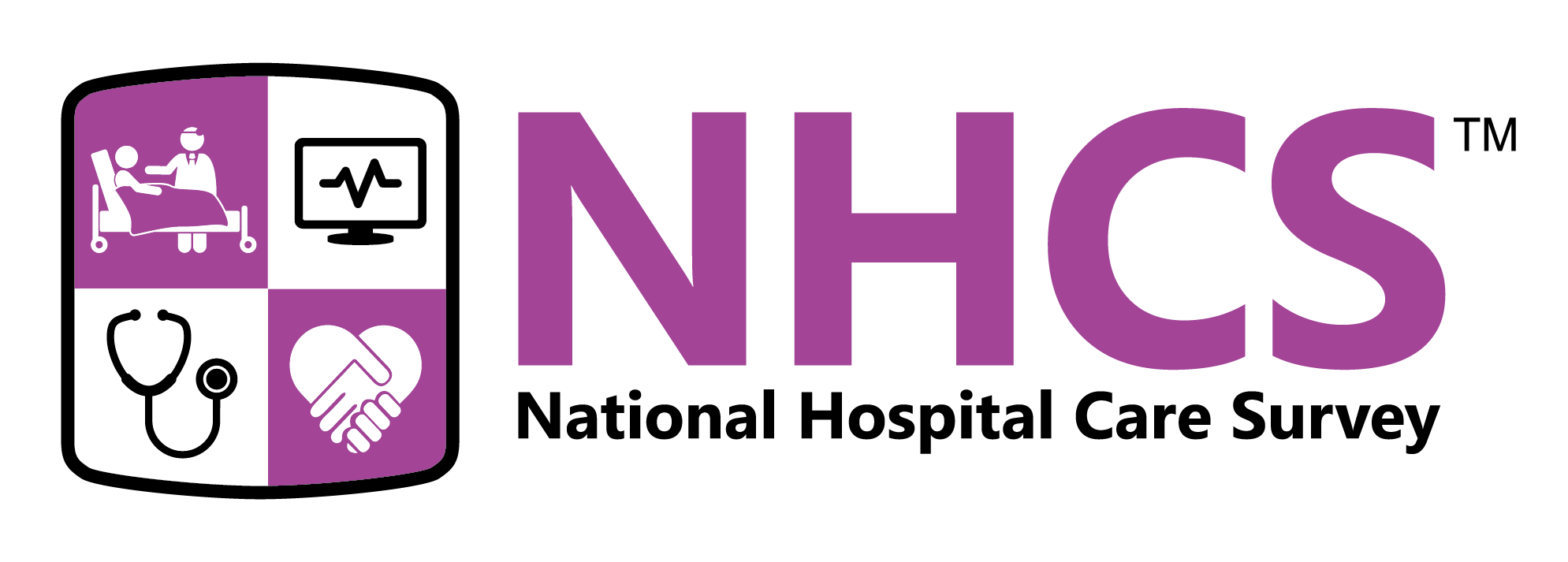Key points
- NHCS is the National Hospital Care Survey.
- NHCS collects data about hospital resources and patient visits.
- NHCS data can help track trends and patterns in hospital care delivery.

Overview
The National Hospital Care Survey (NHCS) collects data on patient care in hospital-based settings to describe patterns of health care delivery and use in the United States. Hospital-based settings include inpatient departments, emergency departments, and outpatient departments.
The National Hospital Care Survey is conducted by the National Center for Health Statistics.
NHCS goals
- Provide nationally representative, accurate, and reliable health care data for hospital-based settings
- Answer questions about healthcare quality, use of healthcare resources, and the differences in healthcare services that some people and groups experience
- Address acute and chronic illnesses and respond to public health emergencies
- Monitor national trends in substance use-related emergency department visits, including opioid visits
- Provide data that bring together information about contacts between patients and providers across hospital units
- Link data from hospital-based settings with other data sources such as the National Death Index
- Contribute to a stronger public health system that can address current and future public health threats
What's collected
NHCS collects data on patient care and resource use in hospital-based settings. Participating hospitals electronically submit inpatient discharge and emergency department visit data. Hospitals also provide summary information about patient visits for the calendar year through an additional, supplemental interview.
Data and documentation
The National Center for Health Statistics publishes reports and maintains dashboards featuring NHCS data. In producing these resources, NHCS staff prioritizes protecting the privacy of participating hospitals and their patients.
Data files
The 2020 and 2021 NHCS public use data files are available to download in multiple formats. All potentially identifiable information has been removed to ensure the confidentiality of respondents and patients.
Restricted data files are available through the National Center for Health Statistics Research Data Center (RDC) for a fee. To access restricted NHCS data, researchers must submit requests in the Standard Application Process portal. The RDC provides instructions for preparing and submitting an application to access restricted data.
NHCS data also has been linked with data from other sources. This provides more robust datasets that can be used to analyze complex relationships between data from different sources. These linked datasets are available in the RDC.
Find data documentation for these datasets at Questionnaires, Data Sets, and Documentation.
How the data are used
Objective and timely data are essential to assess the nation's health and wellbeing, as well as how and how well the U.S. healthcare system operates. NHCS provides important information for healthcare and public health professionals, researchers, and policymakers. They can use NHCS data to track—
- Trends affecting hospitals and healthcare organizations
- Factors that influence the use of healthcare resources
- Quality of health care available in the United States
- Disparities in healthcare services provided to different groups
What's new from NHCS
Visits to Health Centers, by Selected Characteristics: United States, 2023 (05/2025)
2021 Public Use Data File (01/2025)
2020 Public Use Data File (04/2024)
Validation of the Enhanced Opioid Identification and Co-occurring Disorders Algorithms (01/2024)
Resources
Visit these websites to learn more about healthcare surveys, including current and retired surveys that have collected hospital care data.
National Health Care Surveys Program
